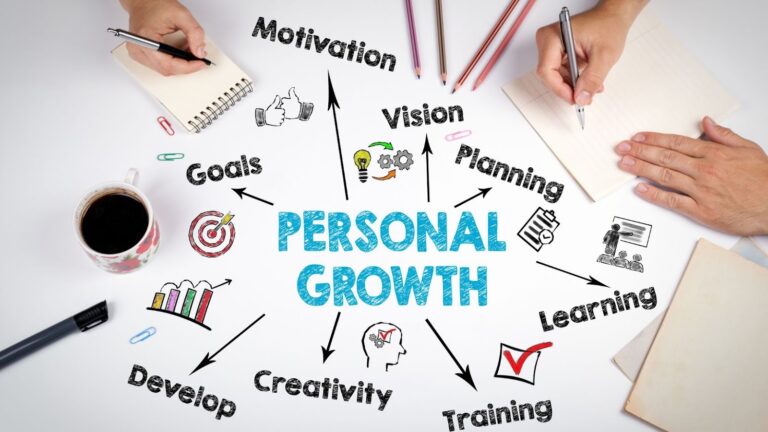
Examples of Personal Development Goals to Elevate Your Life Today
Personal development goals are like the GPS for life’s journey—without them, it’s easy to get lost in the chaos of daily routines. They help individuals navigate through the winding roads of self-improvement, ensuring they don’t end up at the dreaded “Stuck-ville.” Whether it’s learning a new skill or improving emotional intelligence, these goals can transform aspirations into achievements.
Examples of Personal Development Goals
Personal development goals serve as crucial stepping stones toward self-improvement. They create pathways for individuals to enhance their skills and achieve aspirations.
Definition of Personal Development Goals
Personal development goals are specific objectives aimed at improving oneself. These goals can focus on various areas, such as enhancing communication skills, fostering emotional intelligence, or developing professional competencies. By defining clear targets, individuals outline what they want to achieve and create a structure that helps facilitate growth.
Importance of Setting Goals
Setting personal development goals holds significant importance in the journey of self-improvement. These goals foster motivation by providing clear direction. Goals also promote accountability, encouraging individuals to stay committed to their objectives. Moreover, they enhance focus, allowing individuals to prioritize areas needing improvement. Ultimately, personal development goals transform vague aspirations into concrete actions and measurable results.
Examples of Personal Development Goals
 Setting personal development goals enhances growth across various life areas. Below are specific examples targeting key aspects of self-improvement.
Setting personal development goals enhances growth across various life areas. Below are specific examples targeting key aspects of self-improvement.
Goals for Career Advancement
Career advancement goals include striving for a promotion or transitioning to a new role. Increasing networking efforts enhances professional relationships, while pursuing relevant certifications boosts credibility. Engaging in mentorship can further provide guidance and broaden perspectives. Seeking out leadership opportunities within the organization fosters essential skills and confidence. Regularly updating a resume and LinkedIn profile showcases achievements and skills, positioning individuals for future opportunities.
Goals for Personal Fulfillment
Personal fulfillment goals focus on enhancing life satisfaction and well-being. Practicing mindfulness daily can improve emotional and mental health. Setting aside time for hobbies fosters creativity and passion. Cultivating relationships with family and friends strengthens support systems and nurtures happiness. Volunteering regularly contributes to community well-being and promotes a sense of purpose. Prioritizing self-care routines aids in maintaining balance and reduces stress.
Goals for Skills Development
Skills development goals cater to acquiring new competencies and enhancing existing ones. Taking online courses in desired subjects increases knowledge. Joining workshops or seminars provides networking opportunities and hands-on experience. Practicing public speaking can enhance communication skills and boost confidence. Learning a new language opens doors to cultural understanding and global opportunities. Regularly reading books or articles in specific fields keeps individuals informed and engaged in ongoing education.
Strategies to Achieve Personal Development Goals
Setting personal development goals requires clear strategies to ensure success. Several effective methods help individuals translate their aspirations into actionable outcomes.
Creating Actionable Steps
Identifying specific actions supports the achievement of personal development goals. Break larger objectives into manageable tasks, making progress easier to track. For example, a goal to improve communication skills might involve enrolling in a public speaking course or engaging in conversations with colleagues. Prioritizing these steps ensures focus on what’s most important. Establishing deadlines for each task creates a sense of urgency and accountability. Regularly revisiting and adjusting these steps fosters adaptability as circumstances change and new opportunities arise.
Tracking Progress
Monitoring progress significantly enhances the likelihood of achieving personal goals. Implementing a tracking system—such as a journal or an app—provides visibility into advancements made. Measuring milestones helps individuals recognize their achievements and identify areas for improvement. Regular assessments of progress create a feedback loop, reinforcing motivation and commitment. Celebrating small successes encourages continued effort and persistence. Additionally, sharing progress with peers or mentors can enhance accountability, making the journey toward self-improvement more engaging and collaborative.
Overcoming Challenges in Goal Achievement
 Achieving personal development goals often involves navigating various challenges. Identifying and addressing these obstacles proves essential for maintaining progress.
Achieving personal development goals often involves navigating various challenges. Identifying and addressing these obstacles proves essential for maintaining progress.
Common Obstacles
Distractions frequently impede goal attainment. Social media, personal commitments, and work responsibilities often divert attention from priorities. Additionally, fear of failure can create hesitation. Individuals might avoid stepping outside their comfort zones due to this fear. Lack of clarity in goals also presents difficulties. Vague objectives lead to confusion about where to focus efforts. Time constraints often challenge even the best-laid plans as balancing daily responsibilities takes precedence. Recognizing these common obstacles enables individuals to develop strategies for overcoming them effectively.
Tips for Staying Motivated
Staying motivated during the pursuit of personal development goals requires intention. Setting small, achievable milestones creates a sense of accomplishment. Celebrating these achievements fosters a positive mindset. Creating a vision board serves as a constant reminder of aspirations, enhancing focus and drive. Establishing a routine that incorporates goal-related tasks helps maintain momentum. Connecting with supportive peers or mentors provides encouragement and accountability, making the journey less isolating. Regularly revisiting the reasons behind a chosen goal can reignite passion and determination. By implementing these strategies, individuals navigate challenges more effectively and sustain motivation throughout their journey.
Catalyst for Growth and Fulfillment
Personal development goals serve as a powerful catalyst for growth and fulfillment. By setting specific objectives, individuals can navigate their paths more effectively and turn dreams into reality. The journey toward self-improvement is not without challenges, but recognizing these obstacles allows for the development of tailored strategies to overcome them.
Tracking progress and celebrating small achievements keeps motivation alive and reinforces commitment. Ultimately, embracing personal development goals transforms aspirations into actionable steps, leading to a more satisfying and enriched life. With determination and the right mindset, anyone can embark on this rewarding journey toward becoming their best self.







